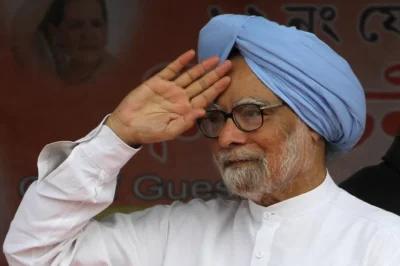Manmohan Singh, India’s 13th Prime Minister, passed away on December 26, 2024, at 92, leaving a legacy of unparalleled contributions to economic reform and international diplomacy. Singh was instrumental in reshaping India’s economic landscape and fostering meaningful engagement with Pakistan. His tenure was marked by efforts to bridge divides and promote mutual understanding, often using cultural diplomacy as a powerful tool.
Born on September 26, 1932, in Gah, a village in present-day Pakistan, Manmohan Singh’s early life was deeply rooted in the tumultuous history of the subcontinent. His academic brilliance led him to pursue higher education at Panjab University, followed by advanced studies at St. John’s College, Cambridge, and Nuffield College, Oxford, where he earned a doctorate in economics. Singh’s scholarly pursuits provided the intellectual foundation for his transformative economic policies.
As India’s Finance Minister from 1991 to 1996, Singh introduced groundbreaking economic reforms to address a severe fiscal crisis. His policies dismantled the License Raj, opened the Indian economy to global markets, and laid the groundwork for sustained economic growth. These reforms elevated India’s international economic standing and provided a framework for addressing shared regional challenges, such as poverty and unemployment, which had implications for India-Pakistan relations.
Manmohan Singh’s tenure as Prime Minister (2004-2014) coincided with significant progress in India-Pakistan relations. Born in the land that became Pakistan, Singh’s personal connection to the region inspired his commitment to fostering peace and cooperation between the two nations.
Between 2004 and 2008, the two countries participated in four rounds of the Composite Dialogue Process, covering critical issues like Kashmir, terrorism, and trade. This period saw a marked increase in people-to-people interactions, overshadowing progress in other areas. Representatives from various walks of life—artists, poets, singers, journalists, athletes, pilgrims, and parliamentarians—frequently visited each other’s countries, demonstrating the transformative power of cultural diplomacy in reducing tensions.
A notable example of Singh’s approach to diplomacy occurred during Pakistani President Pervez Musharraf’s visit to India. At a meeting in Hyderabad House, Singh presented Musharraf with a painting of the Neherwali Haveli in Chandni Chowk, where Musharraf had spent his early childhood. Additionally, Singh gifted Musharraf and his siblings’ birth certificates, preserved in elegant leather folders issued by the Lala Girdharilal Maternity Hospital in Old Delhi. Musharraf reciprocated this profoundly personal gesture by presenting Singh with an engraving of Singh’s birthplace, Gah, housed in a wooden box containing soil from the village. Such exchanges underscored the potential of personal connections in strengthening diplomatic ties.
Also Read: Social media’s transformative role in International Diplomacy
Singh’s tenure also witnessed significant strides in enhancing cross-border connectivity. Initiatives such as the Muzaffarabad-Srinagar bus service, launched in April 2005, and the reopening of the Munnabao-Khokrapar Express rail link in 2006 facilitated travel for families, pilgrims, and traders. Land routes like the Rawalakot-Poonch crossing were opened for trade in 2008, while visa requirements were relaxed in 2012, making it easier for citizens of both nations to connect. These measures bolstered economic exchanges and deepened people-to-people ties, fostering a sense of shared humanity.
Manmohan Singh’s legacy in India-Pakistan relations is one of cautious optimism. His tenure highlighted the importance of cultural diplomacy, economic collaboration, and personal gestures in bridging divides. Despite political and security issues, developments made under Singh’s leadership illustrate that peaceful coexistence is possible.
Manmohan Singh’s life and career encapsulate the transformative power of visionary leadership. As an economist, he steered India toward economic prosperity; as a statesman, he sought to heal the wounds of partition through dialogue and cultural exchange. Singh’s passing marks the end of an era, but his contributions to India-Pakistan relations and his broader vision for a peaceful South Asia will continue to inspire future generations.
International Relations Scholar interested in National Security strategies, with a good focus on Geo-Politics, Foreign Policy, and Public & Cultural Diplomacy.







